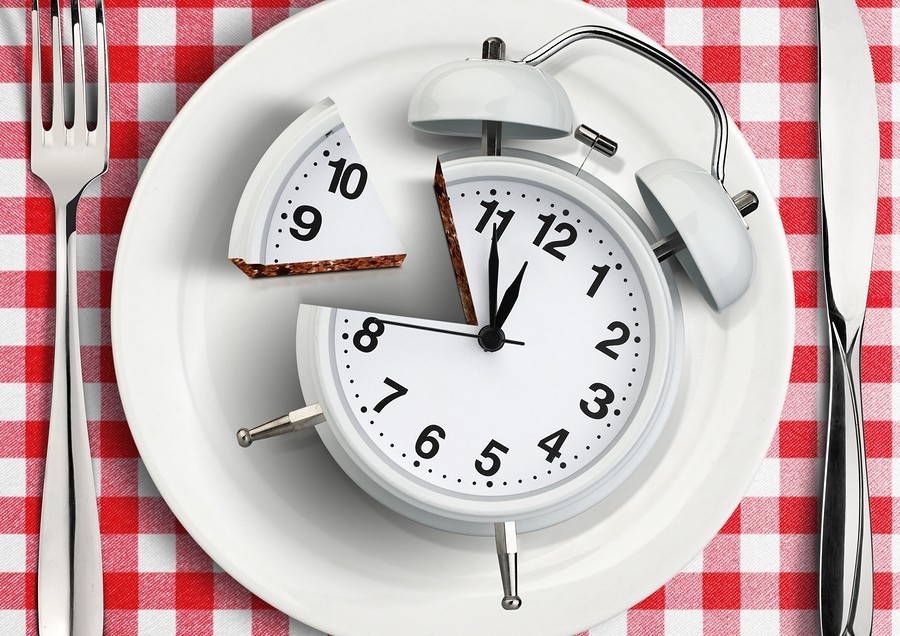Q: I don’t get home until late. Is eating a late dinner hurting my health?
A: Emerging research suggests that eating too late in the evening may lead to weight gain and increased health risks. So far, the studies raising concerns are mainly animal studies, human observational studies (which don’t prove cause-and-effect) and small clinical trials. And studies of dramatic shifts in eating time, as seen in people working night shifts, do not necessarily apply to people who only eat dinner a few hours past the norm.
But putting the pieces of the puzzle together does suggest that it may be worth exploring options for readjusting habits.
This booming field of research in meal timing involves “circadian misalignment,” when biological clocks in the body do not match up with each other. Our internal clocks produce biological rhythms driven mainly by a light-dark 24-hour cycle.
For years, we’ve known that the brain’s biological clock affects our sleep cycles. Now scientists have discovered that organs like the liver, pancreas, body fat, muscle, and digestive tract all have their own independent biological clocks.
 What Body Clocks Do
What Body Clocks Do
Human biological clocks are set to support activity during the day and sleeping at night, so our body systems are better set up to handle incoming food during the day. For example, during the day the body is better able to produce and use insulin to move blood sugar into cells. At night, insulin resistance increases, which means larger amounts of insulin are needed to handle blood sugar.
Now scientists have discovered that organs like the liver, pancreas, body fat, muscle, and digestive tract all have their own independent biological clocks.
Identical meals served at morning breakfast and evening dinner can lead to higher blood sugar at night. Getting a greater proportion of the day’s calories within a few hours of bedtime is also associated in some studies with high blood pressure and increased levels of markers of inflammation, which could pose concern for cancer risk.
Late evening eating may also make it harder to reach and maintain a healthy weight, an important part of reducing risk of cancer and other chronic diseases. Several observational studies show an earlier dinner with a longer period of time overnight fasting links to less weight gain over time. In weight loss interventions, it seems to lead to more weight loss.
Late evening eating may also make it harder to reach and maintain a healthy weight, an important part of reducing risk of cancer .
But it’s not clear whether the key to easier weight loss is the earlier dinner or the resulting longer period overnight without calorie consumption. (Studies vary as to how they define late eating but overall, later dinners are generally categorized as two to three hours within bedtime.)
Other studies have looked at this in less absolute terms, showing that having a greater proportion of calories earlier in the day is associated with lower body fat and greater loss in some short-term weight loss trials. This suggests that simply readjusting meal size throughout the day could be helpful.
Practical Options to Consider
If your schedule means dinner is on the late side, while we wait for more solid research, here are several options to consider.
– Shift your proportion of calories through the day so that breakfast and lunch are bigger, with dinner a lighter meal. And after your late dinner, avoid snacking.
– Since part of the health impact of later dinner seems to involve increased insulin resistance and elevated blood sugars, give extra attention to what you eat at dinner to reduce health risks. For example, refined grains, sweets and sugar-sweetened drinks are not great choices any time of day, but especially limiting them in the evening could potentially help. Instead, focus on vegetables, lean protein and modest servings of whole grains.
– If it turns out that a longer night fast is what brings health benefits, then you could still accomplish the 10- to 14-hour fasts used in studies with a slightly later breakfast. On the other hand, if your time for exercise is early morning, missing the fuel to support a stronger workout could be counter-productive in the big picture of health.
– To avoid additional delays for your dinner, create a roster of meals that you can pull together quickly when you get home. For example, use a slow cooker to have a hot meal waiting when you get home, prepare meals in advance over the weekend, or choose options like main dish salads that come together quickly.
AICR HealthTalk is by Karen Collins, MS, RDN.
Karen Collins, MS, RDN, CDN, is AICR’s Nutrition Advisor. Karen is a speaker, writer and consultant who specializes in helping people make sense of nutrition news. You can follow her blog, Smart Bytes®, through her website and follow her on Twitter @KarenCollinsRD.





